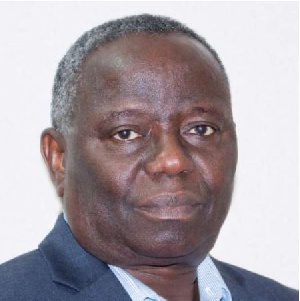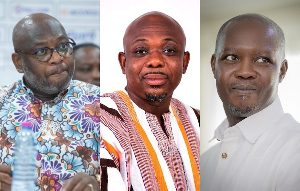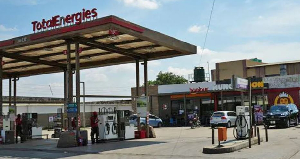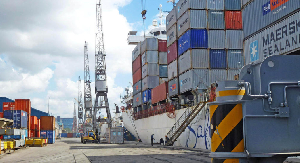THE Millennium Development Authority (MiDA) is to retrofitted buildings of the Korle-Bu Teaching Hospital, University of Ghana and Ghana Education Service and Ministry of Health to improve energy consumption.
The retrofitting exercise will start in six months because the contractor will undergo procurement processes before actual work begins.
Chief Executive Officer (CEO) MiDA, Martin Eson-Benjamin, announced this at a media stakeholders’ engagement in Accra.
He disclosed that 18,000 LED street lights would be fixed across the country while the capacity of staff of the Public Utility and Regulatory Commission (PURC) would be enhanced to ensure efficient tariff regime.
New meters for markets
Additionally, some 10 market centres, eight of which are in the Greater Accra Region and two in Tamale would be fixed with new metres to curtail fire outbreaks.
He announced that the handing-over of the Electricity Company of Ghana (ECG) to Meralco Consortium under the Private Sector Participation of the Power Compact II Agreement would come off on February 1.
MiDA awarded the operations, investment and management of ECG to Meralco Consortium in April last year following the completion of international competitive procurement process and evaluation of the proposals received for the ECG Concession.
The Meralco Consortium is led by the Manila Electricity Company of Philippines, which covers a third of the Philippines and served a customer population in excess of six million.
Eson-Benjamin said three agreements to the contract had been signed, while Parliament had also approved the deal.
According to him, the Authority was given 180 days to work on the conditions of the transfer and was optimistic it would meet the deadline on February 1.
He gave the assurance that all the outstanding issues pertaining to the contract would be resolved after the transfer.
The CEO of MiDA allayed any fears of laying-off ECG workers, noting that, those concerns were discussed with the in-coming management and any breaches would be consequential to them.
About $350 million of the grant is being invested in ECG to make the country’s power distributor operational and financially efficient.
Eson-Benjamin said the nation completed the second year of the Power Compact on September 6, last year, noting that, on that fateful day, the US government fulfilled its pledge by giving the Government of Ghana $490 million grant under the agreement.
In the past two years, Eson-Benjamin said the Authority used it for engagements with the implementing entities and other stakeholders and believed 60 per cent of the preliminary works had been done and would commit $212 million to the project in the third year.
He gave the assurance that the Authority would work with the implementing entities to complete the earmarked projects under the Ghana Power Compact II.
Eson-Benjamin announced that Ghana had been nominated for a Third Power Compact under the Millennium Challenge Account (MCA) alongside four other West African countries, including Burkina Faso, Ivory Coast, Benin and Niger.
He said out of the five countries, two would be selected and believed Ghana stands a good chance of being selected, only if she successfully implemented the ongoing Power Compact II.
Eson-Benjamin urged the implementing entities and stakeholders under the Compact to rally behind the Authority to execute quality projects so that Ghana could benefit from the $536 million grant.
Updating the media on the Authority’s Action Plan for this year, he said it was left with 32 months to the end of the Power Compact II, noting that, 60 per cent preliminary works had been done in the past two years and would leverage on it to complete the Compact on schedule.
He said it had fruitful engagements with the implementing entities and key stakeholders, and said negotiation was ongoing for the commencement of work on the largest electricity bulk supply point at Pokuase in March this year.
Again, additional four primary sub-stations would be built in Kotobabi, Korle-Gono, Achimota and Kanda to enhance power distribution and minimize power leakages in Accra.
Eson-Benjamin said another bulk supply point would be built in Kasoa to supply reliable power to surrounding communities.
More so, there would be refurbishment of 10 power transmission lines to ensure efficiency in power distribution, while a data distribution centre would be built in Accra to coordinate power transmission and monitor faulty lines of the Ghana Electricity Company (ECG) and to halt illegal power connections.
A Metre Monitoring System, he said, would be constructed in Accra to coordinate the 14 different metering systems in the country for easy tracing of illegal power connections and detect faulty lines for prompt repairs.
These infrastructure, Eson-Benjamin said, would turn around the operations of the ECG for efficient service delivery.
He added that new equipment and refurbishment of power distribution system for the Northern Electricity Distribution Company (NEDCo) would boost power supply in the northern parts of the country.
The MiDA CEO said the Authority has been working with the Ghana Standard Authority to ensure all equipment and machines installed were up to standard.
Under the Power Compact II, six projects would be implemented to address the root causes of unavailability of power in some parts of the country.
The project comprised ECG Financial and Operational Turnaround Project, Northern Electricity Distribution Company (NEDCo) Financial and Operational Turnaround Project, Regulatory Strengthening and Capacity Building Project and Access Project.
The rest are Power Generation Sector Improvement Project and Energy Efficiency and Demand Side Management Project, Social and Gender Integration, Environmental and Social Performance and Monitoring and Evaluation and Economics (M&EE).
The Government of Ghana signed the Power Compact II with the Millennium Challenge Account (MCC), an independent United States government agency on August 5, 2014.
Ghana would receive $498 million grant under the Compact to improve the performance of the country’s power sector, unlock the country’s economic potential, create jobs and reduce poverty.
The Compact is being implemented by the Government of Ghana throug
Business News of Tuesday, 15 January 2019
Source: thefinderonline.com













